Page Navigation |
Disclaimer: The organizers note that this is an educational simulation and participation of US Government and Armed Forces employees does not indicate any endorsement of or position taken by any of the US Service Academies, the US Armed Forces, or the US Government.
This semester the event will be completely virtual. We will be using Zoom and Google
Folders to organize ourselves and communicate.
We know that this is very different that last semester's simulation, but we look forward to making it just as rewarding.
Read below for more information about the Schedule and Registration [now closed].
Overview
The simulation will provide both a practical atrocity intervention learning experience and serve as a laboratory for decision-making and conflict analysis.
You will be divided into six groups, with each group acting as a different international actor in the simulated conflict. Before we meet for the orientation and first round on Friday, October 30th, you will need to thoroughly read the material in the background packet in order to understand the situation and jump right into the simulation.
Over the course of six rounds of the simulation exercise, you will be:
- assessing information in real time through life-like materials;
- articulating a series of multidisciplinary policies and programs aimed at trying to nudge the country away from conflict and;
- dealing with the immediate and longer-term aftermath of the conflict.
Each round of play is one hour long, and will meet in assigned Zoom breakout rooms. Between each round of play, all participants meet together in the main Zoom room for a shared assessment.
Because this is a team-based exercise, and because each round builds directly on the rounds that precede it, it is essential that you commit to the full six rounds of play on all three days of the simulation! The simulation's success depends on each team's continuity with its full complement of players.
Each team will have two advisors present for all rounds. The advisors are not there to provide you with directions or to nudge you toward the "right" decisions in each round. Advisors will be working with groups as they digest new information, revise their risk assessments and conflict mapping, revisit their policy options and preferences, and decide whether to share information with other teams.
Each player must use a personal computer with high-speed internet access to participate fully in the simulation.
Schedule
Please hold the following times on your calendar, if you want to participate in this semester's simulation. You must attend all three days in order to participate. All times are based on the time in New York, USA. Please remember that we shift our clocks back an hour on Sunday, November 1st at 2am.
Day |
Time |
Activity |
FRIDAY, OCTOBER 30th |
7:00 PM – 7:30 PM | Orientation |
| 7:30 PM – 8:30 PM | ROUND 1 PLAY | |
| 8:30 PM – 8:35 PM | 5 minute break | |
| 8:35 PM – 9:20 PM | ASSESSMENT | |
SATURDAY, OCTOBER 31st |
10:00 AM – 11:00 AM | ROUND 2 PLAY |
| 11:00 AM – 11:05 AM | 5 minute break | |
| 11:05AM – 11:50 AM | ASSESSMENT | |
| 11:50 AM – 11:55 AM | Survey | |
| 11:55 AM – 1:00 PM | Lunch break | |
| 1:00PM – 2:00 PM | ROUND 3 PLAY | |
| 2:00 PM – 2:05 PM | 5 minute break | |
| 2:05 PM –2:50 PM | ASSESSMENT | |
| 2:50 PM – 3:00 PM | 10 minute break | |
| 3:00 PM – 4:00 PM | ROUND 4 PLAY | |
| 4:00 PM – 4:05 PM | 5 minute break | |
| 4:05 PM – 4:50 PM | ASSESSMENT | |
| 4:50 PM – 4:55 PM | Survey | |
SUNDAY, NOVEMBER 1st |
10:00 AM – 11:00 AM | ROUND 5 PLAY |
| 11:00 AM – 11:05 AM | 5 minute break | |
| 11: 05 AM – 11:50 AM | ASSESSMENT | |
| 11:50 AM – 1:00 PM | Lunch break | |
| 1:00 PM – 2:00 PM | ROUND 6 PLAY | |
| 2:00 PM – 2:05 PM | 5 minute break | |
| 2:05 PM – 2:50 PM | ASSESSMENT | |
| 2:50 PM – 3:00 PM | 10 minute break | |
| 3:00 PM – 3:05 PM | Survey | |
| 3:05 PM – 4:00 PM | CONCLUSION |
Expert Advisors
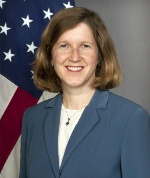
From 2009-12, Ms. Fowler served as Deputy Chief of Mission at the U.S. Embassy in Colombo, overseeing U.S. bilateral relations with Sri Lanka and Maldives. In 2008-09, Ms. Fowler served as Director of the Provincial Reconstruction Team and Sub-National Governance Office at the U.S. Embassy in Kabul, leading the U.S. civilian presence across the country. From 1989 to 2008, Ms. Fowler served in a number of positions specializing in public diplomacy and public affairs, including overseas assignments in Singapore, Pretoria, Thessaloniki, Beijing, Shanghai, and Hong Kong. Her assignments in Washington include three years in the State Department Operations Center, including as Director of Crisis Management Support from 2002-04.
She is a graduate of Stanford University and a distinguished graduate of the National War College. Her awards include the U.S. Department of the Army Superior Civilian Service Award (2009) and multiple State Department Superior Honor awards.
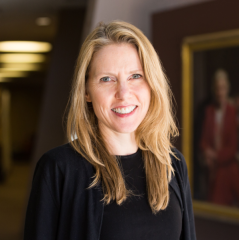
Prior to joining the State Department, Professor Fromholz worked at Human Rights First’s Washington office, where she directed the Crimes Against Humanity program and worked with the Human Rights Defenders program. Professor Fromholz had previously lived in Phnom Penh, Cambodia, where she worked with local human rights organizations, focusing on monitoring and reform of the criminal justice system. She clerked for Judge William Fletcher on the U.S. Court of Appeals for the Ninth Circuit and practiced law at Keker & Van Nest in San Francisco; before going to law school, she worked at the Boston Consulting Group. Professor Fromholz graduated magna cum laude from Harvard College, where she was captain of the softball team and wrote her senior thesis on California water policy. She earned her J.D. from the University of California, Berkeley School of Law (Boalt Hall), where she served as editor in chief of the California Law Review. She speaks French and was a French-American Foundation Young Leader in 2011 and 2012.
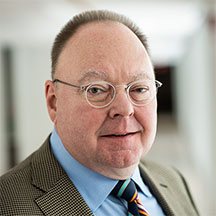
Mr. Lindberg’s main policy focus in recent years has been on improving U.S. government policies and processes as well as international cooperation for the prevention of genocide and mass atrocities. He served as lead of the expert group on international norms and institutions of the 2008 Genocide Prevention Task Force convened by the U.S. Holocaust Memorial Museum and co-chaired by Madeleine Albright and William Cohen. He also served as coordinator for the task group on Preventing and Responding to Genocide and Major Human Rights Abuses for the United States Institute of Peace’s 2005 Task Force on the United Nations (the Gingrich-Mitchell task force). He was a member of the Experts Committee on Preventing Mass Violence, whose final report, A Necessary Good: U.S. Leadership on Preventing Mass Atrocities was published in December 2016. With his long-time collaborator Lee A. Feinstein, he is author of Allies Against Atrocities: The Imperative for Transatlantic Cooperation to Prevent and Stop Mass Killings, a major report for the Holocaust Museum whose principal recommendations the American Bar Association endorsed without dissent at its February 2017 meeting; he has been named co-chair (with Raymond Brown) of the ABA’s new Atrocity Prevention and Response Project. He is also a member of its Working Group on Crimes Against Humanity. In 2017, he joined the Holocaust Museum’s Committee on Conscience, the oversight body for the Museum’s Simon-Skjodt Center for the Prevention of Genocide.
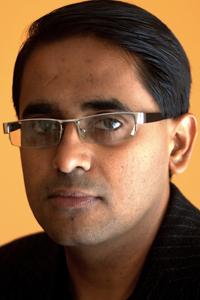
For the past two decades, Mohan has worked on democracy, governance and human rights promotion with a focus on post-conflict elections and democratic inclusion. He has been with IFES since 2001 in the headquarters and the field and supervised programs and field offices in over 22 countries, partnering with a range of international, regional and national stakeholders.
Mohan also serves as IFES’ technical lead on election, conflict and security, providing thought leadership on innovative programs and tools to prevent and mitigate violence throughout the electoral cycle. He has designed, managed and implemented electoral assistance programs in Afghanistan, Myanmar, Nepal and Sri Lanka in post-conflict contexts.
Throughout his career, Mohan’s work has focused on political, social and legal empowerment of the disenfranchised and marginalized – women, ethnic and religious minorities, and persons with disabilities. Mohan was responsible for IFES' flagship Women’s Legal Rights Initiative and Garima Projects in India (2003- 2011) on gender equality and women’s empowerment, which expanded the dialogue on women’s rights and legal resources available to women.
Mr. Mohan has also served in various voluntary capacities including as a member of the Board of Directors at the Tahirih Justice Center, a nonprofit working to protect immigrant women and girls seeking justice in the United States from gender-based violence, and the Institute for Healing Racism.
He is currently working on a translation of vignettes from the history of his native Sri Lanka from Tamil into English. Mohan is fluent in Tamil and Hindi and conversant in Sinhala and Urdu.
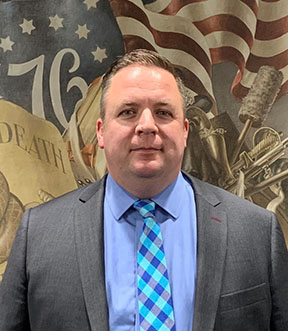
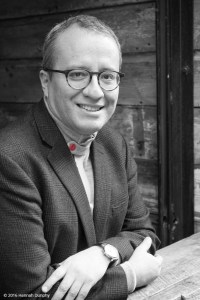
In addition to his expertise, he is an avid participant in policy debates on the intersection of human rights, democracy and peace; as well as a creative researcher and educator. He lives in New York City.
Registration
Registration is now closed.

